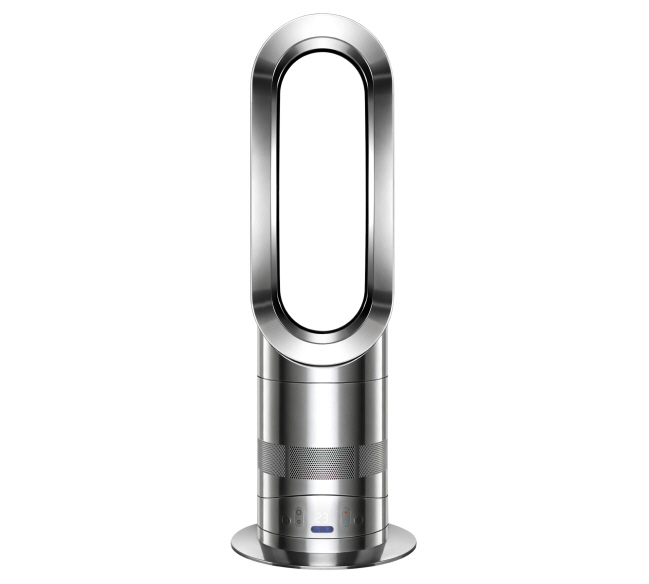Inventor James Dyson with his new Airblade Tap device that washes and dries hands in 12 seconds without you having to leave the sink
Dyson’s big secret is out – its latest revolutionary invention is the Dyson Airblade Tap hand dryer that washes hands and dries them without people having to leave the sink. The Airblade Tap sends sheets of air at 430mph and has hands dried within 12 seconds.
In what will no doubt be a boon for hygiene enthusiasts, infrared sensors pinpoint hand positions and release water from the tap stem.
Once hands are wet and drying is requested, integrated circuitry computes the information and activates the latest Dyson digital motor, creating two high-velocity sheets of air on the tap’s branches at 430mph.
Hold on a minute, a tap and hand dryer, you say? Yes, well, it’s not an iPhone or some kind of portable smart computing device but the implications in terms of hygiene and power economy are clear and this could prove to be major in the hospitality sector and eventually the home.
This is how you invent stuff
That’s the secret to UK inventor James Dyson’s success. While everybody else is rushing off to come up with the latest shiny gizmo, he throws a caustic eye on the things that need fixing, the things that need to be done right.
Take the vacuum cleaner business. How many cheap machines are out there in the marketplace that last longer than a year before having to be thrown away? In Dyson’s case, he came up with a proper range of vacuum cleaners that are powerful, efficient, and ergonomic and will remain in a home for years.
He also came up with a ceramic room heater that can heat a room within minutes but feels cool to the touch.
It’s called engineering and pretty much a second industrial revolution of sorts is under way as the world cottons on to the fact that not all innovation is cyber, that people need hardware that works.
In the case of the new Airblade Tap hand dryer, it is powered by the Dyson digital motor V4 – a power dense brushless DC motor, utilising a bonded magnet encased in a carbon fibre sleeve. It is one of the world’s smallest and fully integrated 1600W motors. Using digital pulse technology, it accelerates from 0-90,000rpm in less than 0.7 seconds.
And of course there’s Dyson’s sense of ascetic design and practicality. In his own words: “Using laser-cutting techniques to manipulate marine grade steel, Dyson engineers have created an intuitive, high-performance tap. Two branches channel high-velocity air to literally scrape water from hands and into the sink – not the floor.”
It is also designed to be less noisy than the hand dryers we are familiar with. Dyson engineers spent more than 2,240 hours designing the motor bucket, and worked hard to contain noise – introducing springs to reduce vibration, acoustic foams to absorb noise and expansion chambers to improve sound quality.
Six Dyson-designed Helmholtz silencers combine to absorb tonal frequencies and reduce the motor tone. The first harmonic of the motor tone, plus the high pitch noise made by the impeller have all been contained and made almost inaudible to the human ear.
Independent infrared sensors allow the user to have as much water and air as they want, according to need. An aerator mixes the water and dispenses water across hands to reduce the volume of water used and the flow rate of water is controlled by motion detection.
The Dyson Airblade Tap hand dryer is made from 304 stainless steel – an anti-corrosion steel used for the construction of boats. Dyson engineers used specialised laser welding technology to weld tough steel accurate to 0.08mm, using temperatures as high as 1400 co. The laser precision means there are almost no joining lines – air, water and electrics are contained in a smooth package at the sink.
Seven years’ worth of R&D
In addition to the new Airblade Tap, Dyson has also launched a new Airblade V wall-mounted hand dryer that is 60pc smaller than the original and yet dries hands within 10 seconds.
The company has also unveiled the Airblade mk2 hand dryer, removing 1.1kg of materials from the machine. Like the Airblade V, it also dries hands within 10 seconds.
Dyson has more than 100 engineers in its in-house motors team and has spent £100m researching and developing its digital motors over the past 15 years. Dyson continues to invest £10m a year into motor R&D.
The latest Dyson digital motor cost stg£26.9m to develop. It was the result of seven years development.
